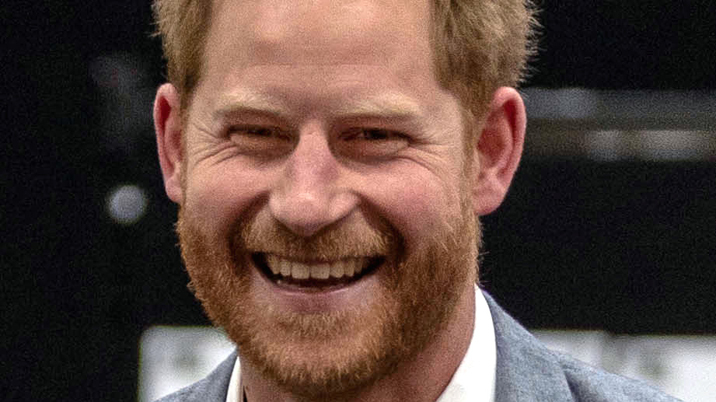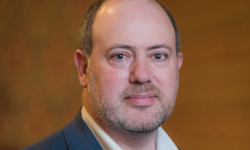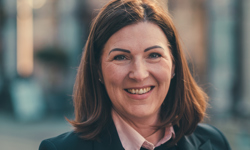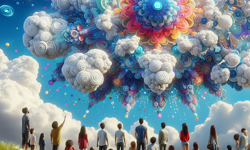
Now everyone has had enough of the Harry and Meghan story. Most had enough from the day the Netflix documentary was released. Many had enough before that. Yet everyone too has an opinion. So, here’s mine.
There was one aspect to the story that kept me watching and reading: how the Sussexes saw the press as the number one bad actor in their story, from his mother’s treatment to her family fallout, their exit from the UK and right up to the present. Is that all deserved? And why on earth should it matter to those of us who are doing journalism of a kind that couldn’t be more different?
Except for the media angle, I’m neither personally nor professionally very interested in the royals, and I didn’t have a strong opinion on these two. I suspected some exaggeration. They weren’t secretly married by the Archbishop of Canterbury before the big day. Palace officials say she was offered more advice and help than she claimed, but she didn’t take it up. There are other examples. But overall, I was prepared to be broadly sympathetic. Claims of racism – or unconscious bias – in the royal family seemed quite possible to me. After all, institutional racism runs through many of our old institutions, often by their own admission.
The Netflix documentary was professional, slick and had some interesting interviews with commentators. It was sometimes easy to forget that this was their story told exactly how they wanted by their own production company. Every now and then, the tone, language or obvious lack of normal journalistic balance would jolt you back into the reality of what you were really watching. It is ironic then that these programmes made this mild supporter feel less sympathetic rather than more.
The third episode has the most to say about the role of the press but the way Harry explained it wasn’t quite right. The royal rota, in which journalists take turns to attend appearances and share their coverage with the rest, comprises all newspapers, he said, except one (the Daily Telegraph). He failed to mention the Press Association news agency, a key – and non-partisan – contributor to the pool, as well as broadcasters including the BBC, Sky and ITV. And few important stories come through the pool anyway because, as Harry himself says, it mainly covers royal public relations and official visits.
Harry tends to lump all the press or sometimes media into one. I don’t think it’s intentional; it’s a shorthand. Most people understand he’s really talking about the corner of the media that is the tabloids and the paparazzi. But it’s unfortunate. The public has long had the lowest opinion of journalists and it wasn’t improved by the circumstances of Diana’s death in 1997. Her driver that night went through the tunnel at twice the speed limit, but people can’t forget the press pack chasing her car or how they behaved at the crash. Harry described the photographers as just one part, but a crucial part, of the tragic events that night. They didn’t kill her, but what they did was wrong.
There was positive coverage too
Harry, though, ignores the role of the press beyond the tabloids. Remember that the early coverage of Meghan was positive and broadcasters, broadsheets and others continued that positive coverage, sometimes to the point of sycophancy. Sadly, there was always racist coverage from the start of the relationship but it doesn’t explain the wider media’s about-turn from positive and gushing to negative and sharply critical. That may have been more down to the pair refusing to ‘play the game’ as the press saw it. You may ask ‘why should they’ and they obviously asked themselves the same question and withdrew. But it’s not necessarily a conspiracy between the press and the palace.
This is a hereditary monarchy in a democratic era. Is it too much to ask that in return for the unique position and support provided them by the country that they play that game? It’s official pictures and public appearances, with the odd comment. That is essentially what ‘the deal’ is.
BBC royal correspondent Nicholas Witchell called claims that the press was out to destroy her as “absurd” and also said the claims of some conspiracy between the palace and the press stretched the bounds of credibility. Notably, the Sussexes didn’t give specific examples.
If you’re going to attack anyone in a documentary, it helps if you back up your claims with hard facts – and that you get your facts right. They’d point out that this is not what their detractors have done. But the press and the media is so much more than the tabloids.
Meghan called their BBC engagement interview an “orchestrated reality show” and complained they didn’t get to tell their story. “Recollections may vary”, said the BBC interviewer Mishal Husain, who added that they even consulted the couple on what they wanted to talk about beforehand.
Surveys show that the public is further losing sympathy with the Sussexes. There’s a magazine editor’s adage which says that when you suspect your readers may have had enough of a celebrity, that means they’re only good for three more covers. As public opinion turns, maybe Harry and Meghan are the exception that proves the rule. That’s a pity because Meghan bringing refreshing diversity to the white, upper class, somewhat stuffy British royal family should have been good news for magazines and newspapers. It’s sad things have gone the way they have.
This article was first published in InPublishing magazine. If you would like to be added to the free mailing list to receive the magazine, please register here.












